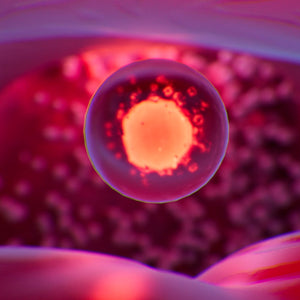Ovulation is the release of a mature egg from the ovary. It signals the beginning of your fertile period. LH (Luteinizing Hormone) is one of the hormones produced by the pituitary gland. It is secreted at very low levels throughout your menstrual cycle. Once a developing egg follicle reaches a certain size, LH secretion surges to high levels. This hormone surge is what triggers ovulation about 24 to 48 hours later. Your LH surge is important because it initiates the beginning of ovulation.
The best time to begin testing for ovulation is a few days before you are scheduled to ovulate. Ovulation occurs midway through your menstrual cycle.
Your most fertile days of the month are 1 to 2 days before and after your ovaries release an egg. Sperm can live in the body for up to 5 days. So, conception can occur if you make love 5 days before ovulation, and up to 1 day after ovulation.
Predicting ovulation is easier when you have a regular menstrual cycle. With a 28-day cycle, you will likely ovulate on or around day 14, so you will want to start testing around day 10 or 12.
If you have a short cycle, you can assume that ovulation will most likely occur within 4 days of your cycle’s midpoint. So, you should start using an ovulation test kit 4 to 6 days prior to your cycle’s midpoint.
It is recommended to do the test twice a day (one after 10am and one around 8pm). First morning urine is not recommended since LH surge may happen later that morning. When you test twice a day you have higher chances not to miss your LH surge.
Liquid intake should be reduced approximately 2 hours prior to testing (no more than 8 oz during these 2 hours). Another important thing is that for some women a clear positive result may last for a couple of days, for others it can be less than 12 hours. That's why we always recommend testing twice a day so that there is a better chance to catch the surge. Please note positive LH test indicates that the ovulation will take place between next 24 and 48 hours.
Your body produces LH (Luteinizing Hormone) every day during your cycle and you will always have some amount present in the urine. That is why you will see a test line on most of your tests. This is a healthy sign. Just remember, that the result is considered positive if the test line is at the same intensity or darker than the control line.
In order to be sure if the test strip is showing a true positive result, it is important to continue testing after you receive the same intensity lines. The test line may become even darker than the control line or it may become pale again, indicating that the previous test result was a true surge. The positive test color line may vary depending on the individual. While some ladies can see the test line match the control line prior to their ovulation peak others see test lines a way darker than the control one. When test line becomes lighter than control, that would indicate that your LH surge is over and ovulation will take place within the next 24 to 48 hours. For some women LH surge can last a couple of days, while for others it only lasts about 12 hours. Please keep in mind that every cycle is unique. Some women do not ovulate every cycle and will not see an increase in LH levels during these non-ovulatory cycles.
Certain medical conditions and medications can adversely affect the performance of the test: for example if you are actually pregnant, have recently been pregnant, have reached menopause or have polycystic ovarian syndrome (PCOS) you may get a misleading result. This may also be true if you are taking fertility drugs containing Luteinizing Hormone or Human Chorionic Gonadotrophin. Clomiphene citrate (Clomid®) does not affect the tests, but may affect the length of your cycle and, therefore, when you should be testing.
Related blog articles:
Pregmate App - Ovulation Tracker, Fertility and Period Calculator ![]()
Conception explained. Fertilization and Implantation. ![]()
Using ovulation tests to identify the most fertile days of the month ![]()
What day should I start testing for ovulation?
When to collect urine for ovulation test?
When to begin testing for ovulation?
Reading ovulation test results
How often should you test for ovulation?
Can any medication or medical condition affect ovulation test results?
Ovulation test result examples
Reading ovulation test strips results
What causes PCOS? Symptoms and signs. ![]()
Can I use urine ovulation dipstick tests with PCOS?

